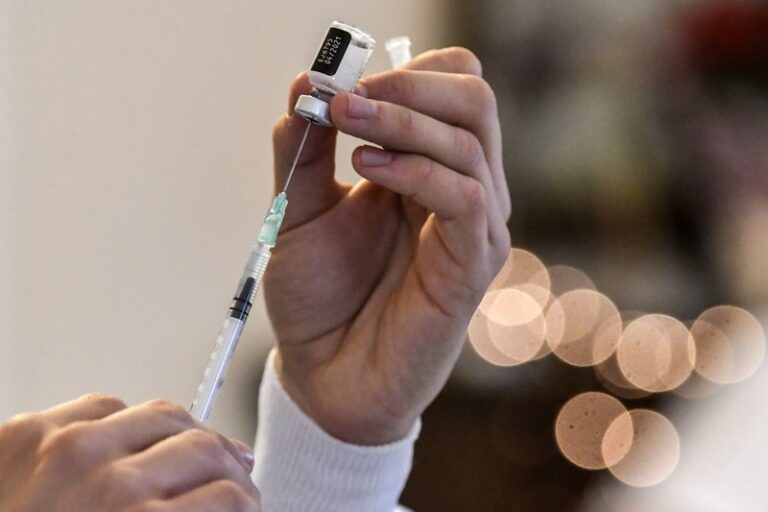
(AP) — The European Commission defended its coronavirus vaccination strategy Monday amid growing criticism in member states about the slow rollout of COVID-19 shots across the region of 450 million inhabitants.
Vaccinations programs in the 27 nation-bloc have gotten off to a slow start and some EU members have been quick to blame the EU’s executive arm for a perceived failure of delivering the right amount of doses. In Finland, health authorities are reportedly unhappy that the country only received about 40,000 doses in December, instead of the 300,000 that were expected.
Facing a barrage of questions on vaccines during a news conference, EU Commission spokesman Eric Mamer said the main problem with the deployment of vaccination programs “is an issue of production capacity, an issue that everybody is facing.”
“We have actually signed contracts that would allow member states to get access to 2 billion doses, largely enough to vaccinate the whole of the EU population,” he said.
As part of its strategy, the EU has sealed six vaccines contracts, with Moderna, AstraZeneca, Sanofi-GSK, Janssen Pharmaceutica NV, Pfizer-BioNTech and CureVac. But only the Pfizer-BioNTech vaccine has been approved for use so far in the 27-nation bloc.
The European Medicines Agency’s human medicines committee met Monday to discuss the Moderna vaccine, but didn’t issue a recommendation for it to be given the green light for use in the EU. The agency tweeted that the meeting “has not concluded today” and would continue Wednesday. It said it wouldn’t comment further.
Mamer also clarified the role of the commission in securing contracts with potential drug makers. He said the executive’s arm “acted as an investor” to provide funding to pharmaceutical companies developing vaccines. The goal was to speed up production capacities and research, with all EU nations free to decide how many doses they would buy from the vaccine producers of their choice.
“Ultimately, these vaccines have to be produced, delivered, and some of the logistic chains involved are very sophisticated,” Mamer said, insisting that vaccination programs have just started, and that the big deliveries of doses are foreseen around April.
Asked why the Commission did not buy more doses of the Pfizer/BioNTech vaccine, Stefan de Keersmaecker, the Commission’s health policy spokesman, said the “main philosophy was to diversify our portfolio, not to put all our eggs in one basket.”
De Keersmaecker said the contract with Moderna provides for an initial purchase of 80 million doses on behalf of all EU nations but that the commission intends to use its option to request a further 80 million doses once the vaccine is approved. With the Pfizer-BioNTech vaccine, the commission has an option for an extra 100 million doses that will bring the total to 300 million shots. Both vaccines require two shots to be fully effective. The Commission added without elaborating that it is in negotiation with Pfizer and BioNTech for the purchase of additional doses
The slow rollout of vaccines has sparked widespread disappointment across the bloc. The cautious approach has seen just a few hundred people vaccinated in France after the first week, while the Dutch government faced criticism for its late start in delivering vaccinations, lagging well behind many other EU nations. Consequently, the Dutch health ministry said it is bringing forward the start of vaccinations by two days, with the first shots being administered Wednesday.






